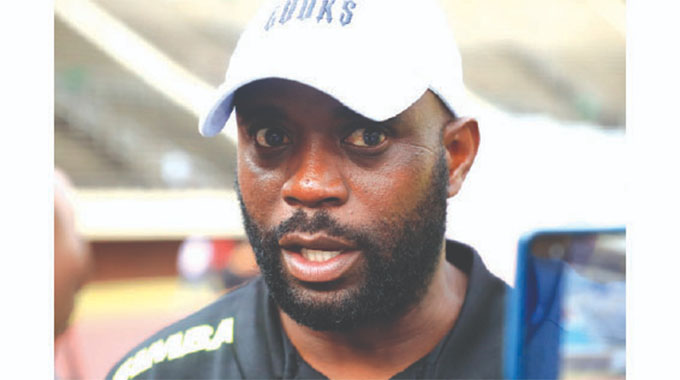A COURSE MADE IN HELL

 Robson Sharuko Senior Sports Editor
Robson Sharuko Senior Sports Editor
SHOCKING images have emerged of the tough conditions in which scores of local football coaches, including some who work for clubs in the domestic Premiership, were forced to stay as they underwent a CAF C Licence Course, which ended in Kwekwe last Friday.
The coaches paid $350 each for the CAF C Licence Course, which ran for 10 days and were each allocated a very small single bed, in a dormitory that was used as their bedroom for the duration of their coaching workshop.
Although most of the coaches in attendance were grown-up individuals, they had to endure the humiliation of being packed onto those small and single beds, in a dormitory, in what was clearly an insult to their privacy where they were treated like kindergarten kids.
There were no wardrobes in that dormitory and the coaches had to keep their clothes, for the 10-day duration of the course, in their bags, many of which were stuffed under the little beds.
The leaked images also show that their food was also cooked, on a fireplace just outside the dormitory, and one of the pictures shows what looks like meat being cooked in an environment that appears dirty and unhygienic.
Even though there is food, in some of the pots, including the one that is on the fireplace, the place looks deserted, without anyone in attendance, to guard the food, raising fears of how much attention was given to such an important, if not sensitive, part of their programme.
“The days we were there were like hell for some of us because you are stripped of whatever dignity that you come with even though this is meant to be something that one enjoys as it is part of improving your coaching education,” one coach, who chose not to be named for fear of being victimised, told The Herald.
“The message we got was that the organisers were trying, as much as possible, to make sure that they got the cheapest deal for themselves, even though we paid $350 each for the course, and it’s sad that we have reduced our football to such levels.
“These were coaches, including men who have their comfortable lifestyles as they work in the Premier League, and all they wanted to do was to improve their coaching knowledge, and you got this feeling that we were being treated as kids who had come to an academy to be taught how to play the game.
“The coaching lessons themselves were good and I have to give credit to Gibson Homela and Takaendesa Jongwe (ZIFA technical director), who were the instructors, but you always felt that the participants were being haunted by the living conditions and this was affecting the concentration of some of the coaches.
“The food was also a major cause for concern, among some of the participants, but what can you do, really, because that is the way things are in our football now?”
Some of the Premiership coaches, who were in Kwekwe for this CAF C Licence Course were Luke Petros Jukulile, a former Zimbabwe international who guided Whawha into the top-flight league from the ZIFA Central Region Division One League last year.
Witness Mukhuli, the Harare City assistant coach, and Tostao Kwashi, who is having his first dance with top-flight football coaching, as an assistant coach at CAPS United, also attended the course.
Earlier this year, this newspaper exposed the way local coaches were being ripped off by ZIFA who were using the CAF Licence Coaching Badges as cover for their exploitation of the coaches.
While the Namibian coaches will pay about $100 to enrol for a CAF C Licence Coaching Badge, the local coaches have to pay THREE times that amount, in what some have described as a lucrative money-making drive by some officials at ZIFA House.
The associations are the ones who run the CAF Courses, and peg the fees for their coaches.
The Herald revealed that local coaches pay the highest fees, on the continent, just to get a CAF Licence Coaching Badge, paying as much as SIX times what their counterparts in Ghana pay for a similar CAF A Licence Coaching Badge.
The local coaches also pay THREE times what their colleagues in Botswana pay for a CAF B Licence Coaching Badge.
The Botswana coaches still feel that what they are paying is outrageous and recently took their association to task for charging them 2 000 pula for a CAF B Licence Coaching Badge.
The 2 000 pula, about US$200, for a CAF B Licence Coaching Badge, is a third of the US$600 that Zimbabwean coaches have been paying for a similar qualification.
The local coaches pay THREE times more to try and secure a CAF B Coaching Licence Badge, than their counterparts across the border in Botswana, in yet another graphic illustration of the way ZIFA have been systematically abusing the domestic gaffers.
ZIFA officials have never cared to produce an account of what they use the money raised from the levying of the coaches, who have been forced to pay a fortune to just try and improve their coaching skills, and the association’s audited accounts did not show that as income that streamed into their coffers.
The sorry plight of Zimbabwe’s coaches is highlighted by the fact that they are forced to pay as much as SIX times what their colleagues in Uganda fork out to their association in participation fees just to try and obtain a CAF B Licence Badge.
The poor Zimbabwean coach forks about TWICE what his or her colleague in South Africa, just across the Limpopo, is paying to try and secure a similar CAF B Licence Coaching Badge.










Comments